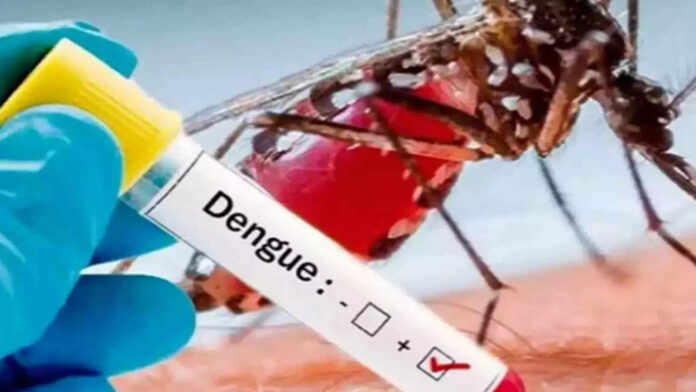Dengue is a viral infection transmitted to humans through the bite of infected Aedes mosquitoes, particularly Aedes aegypti. It is common in tropical and subtropical regions, especially during the rainy season. Dengue can range from mild to severe, and its severe form is called dengue hemorrhagic fever (DHF) or dengue shock syndrome (DSS), which can be life-threatening.
Symptoms of Dengue:
- Fever:
- Sudden onset of high fever, which can last 2–7 days.
- Headache:
- Intense headaches, particularly around the eyes (retro-orbital pain).
- Muscle and Joint Pain:
- Severe muscle, bone, and joint pain (often referred to as “breakbone fever”).
- Rash:
- A red rash may appear a few days after the fever starts, usually beginning on the chest and spreading.
- Fatigue:
- Extreme fatigue and general weakness are common and can persist for weeks.
- Nausea and Vomiting:
- Feeling nauseated or vomiting is often reported by patients.
- Swollen Glands:
- Lymph nodes may become swollen.
- Minor Bleeding:
- In some cases, there may be bleeding from the nose or gums, easy bruising, or blood in the stool or urine.
Severe Dengue Symptoms:
- Severe abdominal pain and continuous vomiting.
- Bleeding under the skin, gums, or nose.
- Blood in stool or urine.
- Drop in blood pressure leading to shock (DSS).
- Organ failure and difficulty breathing.
Treatment for Dengue:
There is no specific antiviral treatment for dengue. The focus is on supportive care to manage symptoms and prevent complications.
- Rest:
- Adequate rest is essential during recovery.
- Hydration:
- Drink plenty of fluids like water, electrolyte solutions, or oral rehydration salts to avoid dehydration, especially if experiencing vomiting or diarrhea.
- Pain Relief:
- Paracetamol (acetaminophen) can help reduce fever and relieve pain. Avoid non-steroidal anti-inflammatory drugs (NSAIDs) such as aspirin and ibuprofen, as they can increase the risk of bleeding.
- Monitoring for Severe Symptoms:
- Close monitoring for signs of severe dengue is crucial. Seek medical attention if symptoms worsen, especially if there’s bleeding, difficulty breathing, or signs of shock (rapid or weak pulse, cold skin).
- Hospitalization:
- In severe cases, hospitalization may be required for intravenous (IV) fluids, blood transfusions, and intensive care support if needed.
Prevention of Dengue:
- Avoid Mosquito Bites:
- Use mosquito repellents, wear long-sleeved clothing, and use mosquito nets, especially during dawn and dusk when mosquitoes are most active.
- Eliminate Breeding Sites:
- Aedes mosquitoes breed in stagnant water, so ensure that water containers, pots, tires, and gutters are clean and dry to prevent mosquito breeding.
- Vaccination:
- In some regions, dengue vaccines (e.g., Dengvaxia) may be available for people who have had a previous dengue infection, but this is not universally available or recommended for everyone.
Managing dengue early and ensuring proper care can help prevent complications and promote a smoother recovery.



